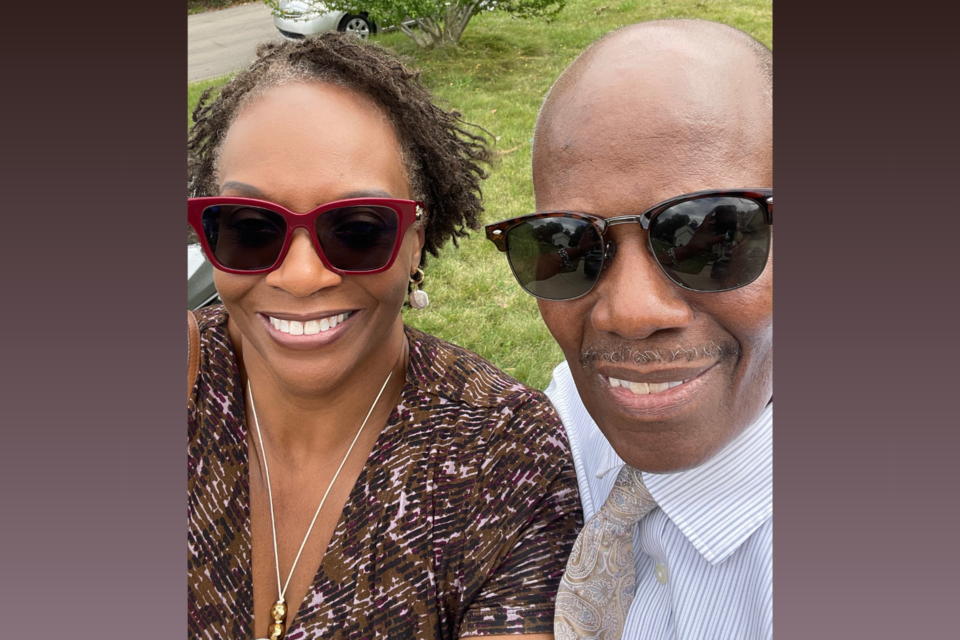As an auto accident survivor, Rev. Faith Green Timmons shares her deeply personal story to persuade every Michigan United Methodist to support this year’s Advocacy Day on March 12.
FAITH GREEN TIMMONS
Michigan Conference Communications
Many claim that at the moment of death, your entire life flashes before your eyes. Sunday, November 8, 2015, was not my time to go. That morning, my heart was set on administering the sacraments to a hospitalized parishioner. My family had exciting plans for that afternoon. As I headed out early for the pastoral visit, my son asked if he could come along.
His request was not unusual. He loved praying and singing with older church members. But that day, actually that entire week, my 9-year-old acted almost like he sensed a need to protect me. He went everywhere I went and kept begging to ride in the front seat. My answer was consistent: “No!”
However, on November 8, he didn’t ask. He jumped into the passenger seat without a word, and I acquiesced. I figured it wasn’t worth the debate. We were only headed five miles up the road, about a seven-minute drive, with neither of us suspecting that this momentary decision to switch seats would spare his life.
It had been an intense season for our family and Flint: Bethel United Methodist Church. We weathered multiple funerals, faced a historic water crisis, and dealt with lead-related health challenges, all while serving a central role in the emergency response to hazardous toxin exposure throughout the city and a sharp uptick in gang-related violence. Yet, amid these challenges, our community remained resilient, inspiring hope and unity.
An unfortunate result of the collective community trauma, however, was the rise in reports of increased drug dependency, alcohol use, and drunk driving. People were simply trying to cope.
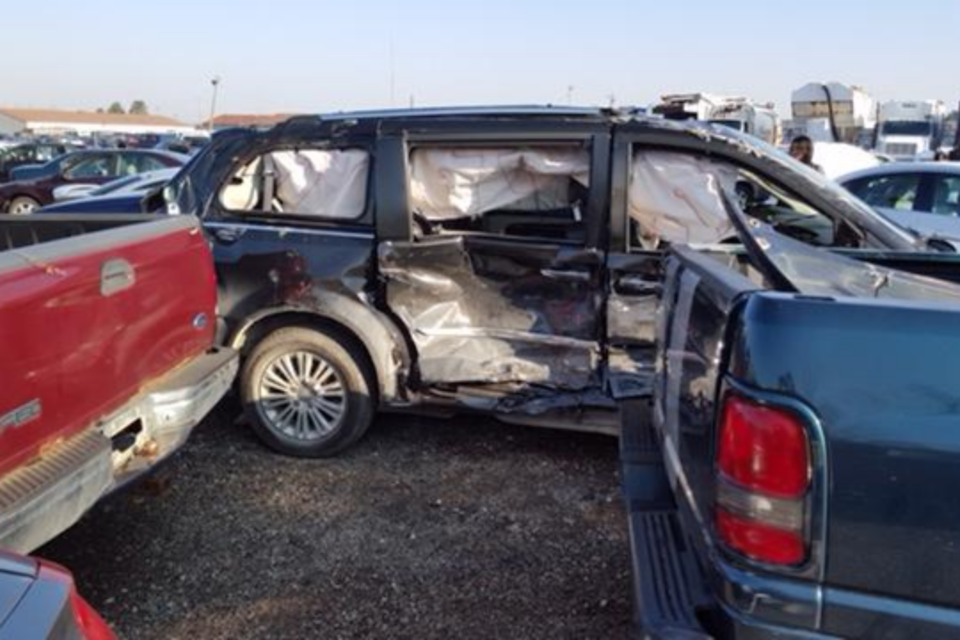
I cannot say this is why a 19-year-old man with a revoked license and no auto insurance chose to get behind the wheel of a pickup truck. But sworn witnesses say he was traveling 85 miles an hour in a 25-mph zone when he crashed into our minivan right in front of the hospital.
He struck us with such force that our vehicle went airborne, spinning twice before tumbling. The momentum of the collision was so strong that our family-sized seven-seater rolled three times, skidding on its side into oncoming traffic before stopping just shy of a traffic post.
Amid the swirl of loose debris flying around us, including my son’s shoe, I glanced at the clock. It was 8:17 am. I pray for that young man, although I feel ashamed to admit that it took me a few years to reach a place of empathy and deep concern. How is it that a kid, the same age as my son now, was so inebriated that his blood alcohol content was three and a half times above the legal limit first thing in the morning? As he lay under armed guard in the emergency room, officers marched down to my bed a few feet away, baffled that he was not comatose. Yet, had he not been so drunk, he might not have survived the impact.
The moment I saw him careening directly toward my son’s car door, my only thought was, “Lord, please save my child!” The collision demolished the back seat where he usually sat. Fortunately, a medical doctor on his way to work rescued my son through the moonroof, and he emerged without a scratch.
An ambulance crew witnessed the accident from an adjacent lane. Shaken to their core, they ran to me in tears, exclaiming, “You should have heard what your son said!” After he was pulled from the wreckage, and still standing in the street amid shards of glass, Gregory remarked, “The Lord spared me. God must have a purpose for my life!”
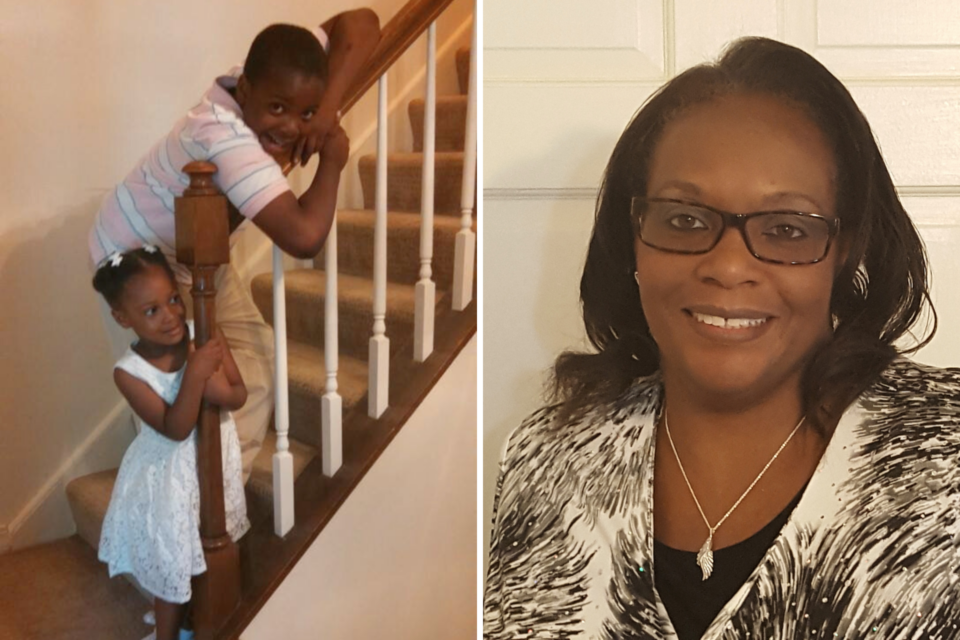
My purpose in sharing our story is to raise awareness about the significance of the auto insurance legislation that Advocacy Day 2025 addresses. Our participation is crucial. When I first read this year’s focus, I was stunned and nearly moved to tears. Too few people realize this is a pertinent issue that impacts everyone in our state. On any given Sunday, your life could change. Your health and future outcome — or that of someone you love — could be determined by Michigan’s auto legislation following a motor vehicle accident.
Let’s build awareness and motivate participation on March 12 in Lansing. You can still register for this day of justice and advocacy. This legislation could significantly impact the care and support available to accident survivors like me.
I now think of my life in two major phases: before and after the accident.
While I am still in the process of rehabilitation, my health status would potentially look much different had my auto-related injuries occurred in 2019 or in the years since. Due to insurance reforms, this state has drastically changed personal injury and auto collision coverage.
For instance, the no-fault system that worked for decades has been significantly altered, making it more challenging for accident victims to receive the care they need. I will not claim that it was ever easy, but today, determining a care plan is much more difficult. Furthermore, many accident victims are finding that the care they need is either unfeasible, unavailable, or inaccessible. This is why our support is crucial in advocating for change.
It took months for the full extent of my injuries to emerge. We did not realize initially that the blow I took had caused permanent damage. First, I suffered unrelenting, incredibly intense migraines. Then, I developed aphasia, which is a challenge with reading, speech, and comprehension. Given the challenges facing Flint at that time, the pace of my life as a parent of young children and lead pastor was too brutal to slow down immediately. Yet, the only way to heal the brain is to rest.
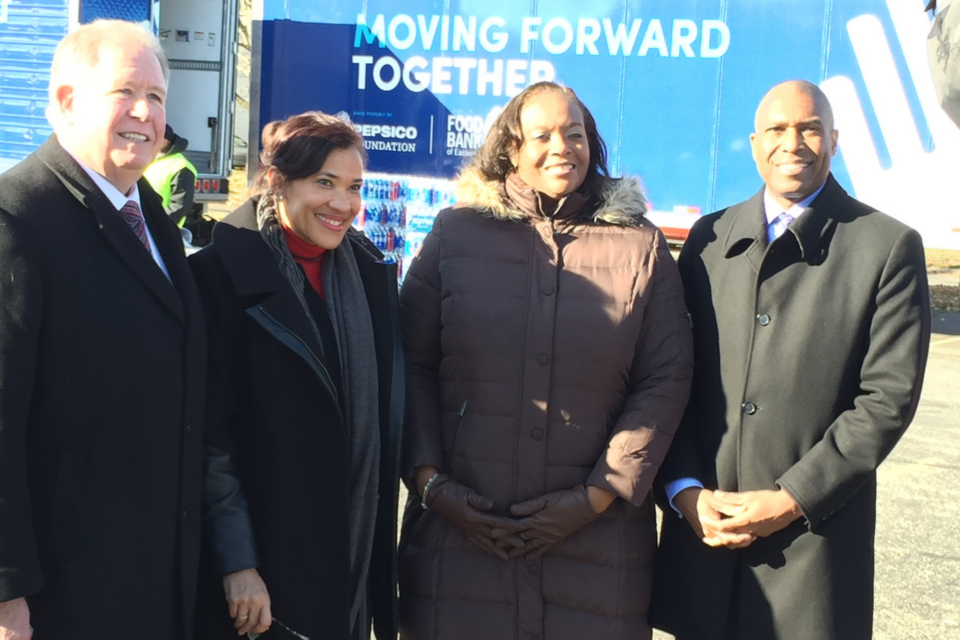
Eventually, I began to struggle with short-term memory loss. I had trouble recalling familiar terms and the names of people. I could not make change or count money, and I often struggled trying to read a clock. I was extremely sensitive to light and sounds. Participating in daily activities, like events and meetings at church, became a challenge.
After a series of extensive tests came a devastating determination: I was diagnosed with a traumatic brain injury (TBI). Even as I share my story, nearly a decade later, these words are deeply painful to express. The truth is, on any given Sunday, you or someone you know could face the same fate. As a result, many of us feel forgotten or invisible.
Auto insurance law governs how injuries are treated, who is responsible, and monetary limits despite the actual cost of one’s care. Again, the young man who hit us was driving both illegally and uninsured. At the time, our state statutes required no proof of who was at fault. My auto insurance carrier covered full treatment for my injuries, along with my health insurance.
The complex issues related to auto insurance in Michigan are worthy of our attention as people of faith. This is a justice issue, a legislative matter of import, and a public health issue.
Regardless of race, ethnicity, religion, gender, socioeconomic status, or any other factor, driving a car in Michigan or being a passenger impacts you, most likely every day! For those who are not concerned, please know it only takes a moment for that to change, potentially for life, permanently.
Some say I am lucky, but I know that I am blessed. I do have moments when I must remind myself to be grateful. Despite continuing challenges others cannot see, I have been slowly but consistently recovering for nearly a decade. It’s harder for some to detect what we have been through as a family, in part because my injuries are unseen.
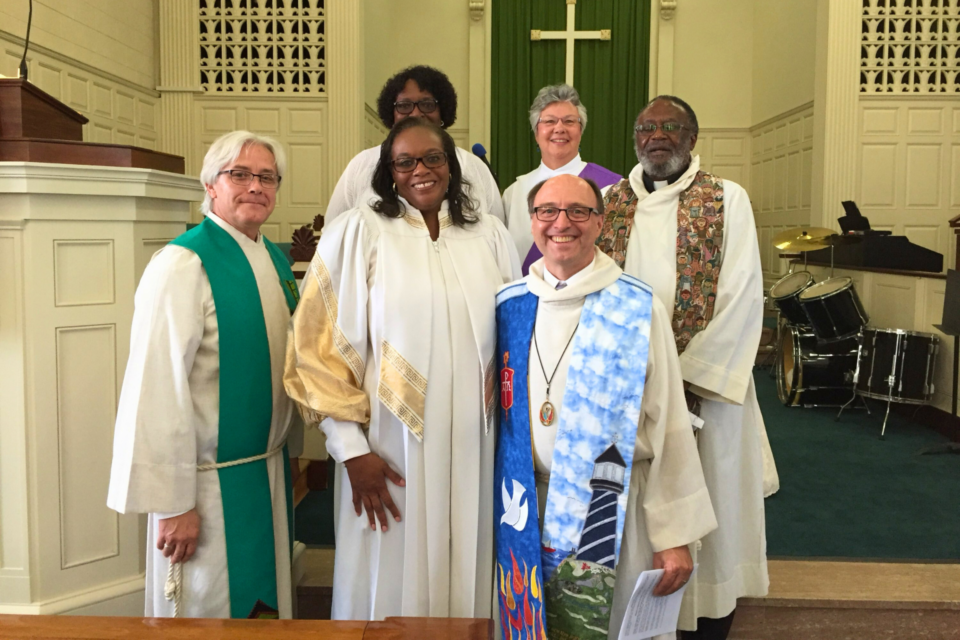
Traffic-related injuries occur daily, ranging from minor to critical. It is not uncommon for auto-accident survivors to require ongoing care, rehabilitation, extensive medical procedures, in-home assistance, medical transportation, handicap accommodations, and outfitting for their homes, in addition to various forms of physical, occupational, and cognitive therapy.
Wading through the intricacies of insurance is a complex task. Because of this, medical providers often hesitate to treat accident-related injuries. Please commit to hearing how these new mandates could affect you and learning about their potential impacts on your family, the people of our churches, and citizens throughout our state (learn more).
Furthermore, the tools we gain from participating in Advocacy Day are transferable skills we can apply to addressing a wide range of concerns. When you join us on March 12, remember to stay for the afternoon session on advocating for matters at the national level (learn more).
Each year, auto accident-related catastrophic injuries leave hundreds of disabled survivors unable to advocate for themselves.
As people of the Michigan Conference of The United Methodist Church, we can voice our concerns. As people of faith, we can and should advocate for their needs in response to Christ’s compassionate call to care. Jesus referred to the church as the ecclesia, meaning the “called-out ones.” This Greek term is used throughout the New Testament to describe Christ’s followers. It is also translated as “assembly” and “body of Christ.” We, “the called-out ones,” are being called to assemble and take action through Advocacy Day 2025.
Advocacy Day is an organized effort to recognize and call attention to the real needs of fellow Michiganders. This endeavor is designed to raise awareness by educating ourselves and dedicating intentional effort to comprehend better the time-sensitive, limited window of opportunity we have to effect positive change at the state level.
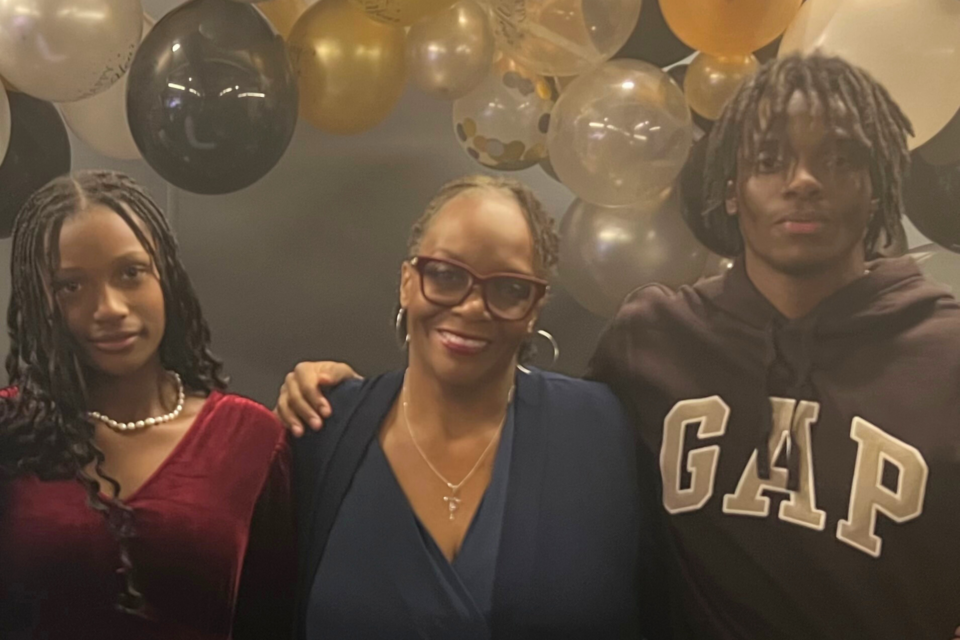
I initially had no intention of expressing myself publicly. But I was shocked and abundantly grateful when I discovered that the Michigan Conference was preparing to address this issue.
I was so happy to feel seen as someone with injuries that cannot be seen. As a disabled person, I sometimes feel forgotten. I shed a tear as I read. These Advocacy Day efforts to address this significant statewide issue make me feel like the Michigan Conference cares about me as a disabled person and others in similar situations.
I am neurodivergent. Corporate worship and church fellowship are a struggle for those with severe sensory issues. I had been active in the church my entire life, then served 18 years as an appointed pastor. However, there are now few ways that I can participate and fully partake in what is traditionally offered.
Today, however, I have something to offer! I was asked to share my story as an auto accident survivor and our testimony as an impacted family. I wish I could go door-to-door and church-to-church, persuading every person to support Advocacy Day at the State Capitol on Wednesday, March 12, and write to their state lawmakers.
Not everyone is passionate about this issue. It isn’t a hot-button topic. There is nothing sexy about auto insurance changes for Michiganders’ motor vehicles. This focus may not be motivating you. Maybe it hasn’t moved your heart or stirred your soul. Yet, there are many souls, some of them helpless, for whom this issue is a matter of life and death. On any given Sunday, that could be you or someone you deeply care about. People with limited mobility and conditions requiring continual monitoring may not be able to be at the State Capitol on March 12, but we can, and I hope you will.
Last Updated on March 6, 2025

